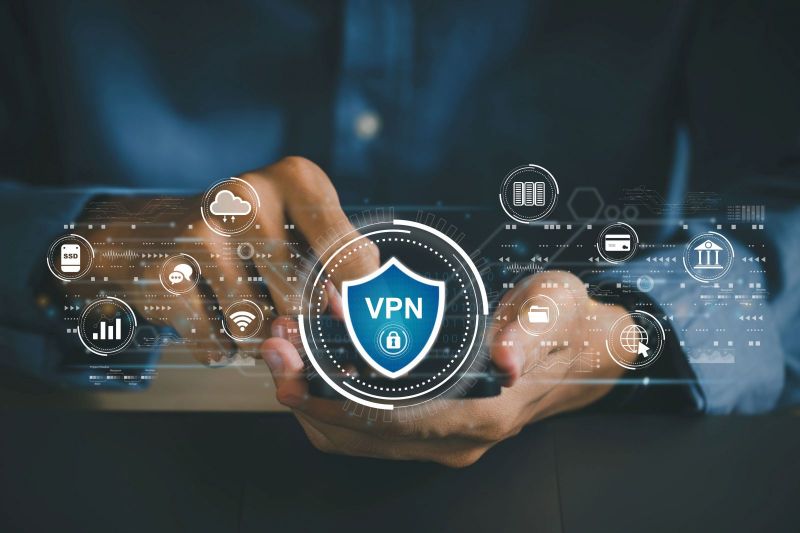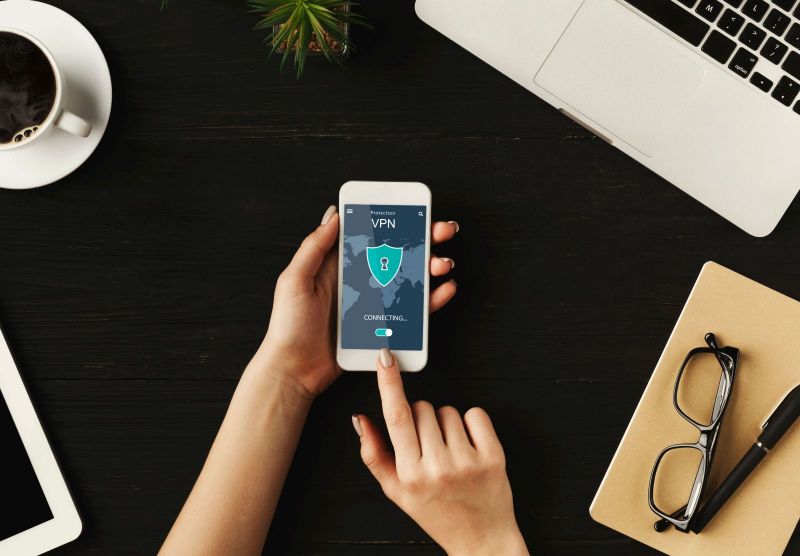R-VPN Apps
If you're looking for a safe way to use public Wi-Fi, it's important to understand both the benefits and the risks of Virtual Private Network (VPN) applications. These programs don't just help you access blocked websites and online services; they also work to ensure your anonymity and keep your personal information safe.
Do you want to browse the internet safely and anonymously, bypass website blocks, and protect your personal data from hackers and government monitoring? Then R-VPN is exactly what you need! R-VPN is a high-quality VPN service designed to solve a multitude of online problems and ensure your security on the web. We don't just help you get around website blocks; we also protect you from hacking and online surveillance. When you connect with R-VPN, you get unlimited internet access starting from just $4 a month. And if you become a loyal customer, we have significant discounts for you. To let you experience the quality of our service firsthand, we provide a free trial version.
R-VPN is compatible with all devices and operating systems (Windows, iOS, macOS, Linux, Android). You can use our service on your smartphone, tablet, computer, or router. Thanks to advanced encryption algorithms like WireGuard, L2TP, Shadowsocks, IKEv2, and OpenVPN, we guarantee reliable data transfer without any bandwidth throttling.
If you run into any problems or have questions, our team of consultants is always ready to help. And if you subscribe to our Telegram channel and join our chat, you can participate in contests, ask questions, and receive gifts.
Don't wait for your personal data to fall into the wrong hands. Protect your privacy and become secure online with R-VPN. Start using our service today!

How VPN Applications Work
When you use a VPN, certain data from your internet-connected computer or smartphone—like your browsing history or data from the apps you use—is sent through servers owned by the VPN provider company. Most applications scramble or encrypt the data transmitted between your phone and the VPN server. So, if you're using a VPN app on an unsecured public Wi-Fi network, anyone trying to snoop on your online activity will only see gibberish, even if you're visiting an unencrypted website.
Furthermore, using a VPN can help shield your physical location. This is because the websites you visit get the impression that you are located where the server is, not where you actually are. Virtual Private Networks can also promise a degree of privacy protection—for instance, making it harder for other companies to track you. However, it's crucial to keep in mind that the VPN company itself might track you for advertising purposes.
Choosing a VPN App: What Should You Consider?
When you use a VPN app, you are giving the company that developed it permission to see your online activity. This includes the websites you visit and what you type online, which can encompass sensitive personal data. Depending on how the VPN is configured, the company might even be able to read information you send when using encrypted services, like banking websites.
So, choosing the right VPN application requires thorough research. Experts recommend doing the following before downloading a VPN app:
Research the VPN App
Search online for the app's name along with keywords like "review," "complaint," or "scam." Look at the app's screenshots, description, its rating, and user reviews on platforms like the App Store or Google Play. Some companies might assure you that their app is secure or has great privacy protection. However, you generally shouldn't take such promises at face value. It's better to do your own research or consult with independent experts.
Review the Permissions the App Requests
VPN apps will display the permissions they request on their app store page, during installation, or when a specific permission is needed. This is valuable information that tells you what types of data the app will access on your device. VPN apps need access to your internet traffic to function, but some apps request additional, sensitive permissions—like those that allow the app to see your precise location or access your phone number and call log. Consider whether such permissions make sense for a VPN and whether you trust the app developer with that level of access.

Remember That Not All VPN Apps Encrypt Your Information
Some apps call themselves VPNs but use protocols that don't encrypt the websites you visit or what you type online. Or they might only encrypt a part of your activity. To find out if a specific app encrypts your information, look for independent review websites online.
Keep in Mind That VPN Apps Usually Don't Make You Completely Anonymous
If you use a VPN app, your Internet Service Provider (ISP) or the public Wi-Fi service probably won't see the websites you visit and the information you post online. But your VPN app will be able to see it. And you also won't necessarily be anonymous to the websites you visit. So, if you, for example, fill out a form with your personal email address, the VPN could still potentially track that activity back to you.
Don't Forget That a VPN App Might Share Your Information with Other Companies
Many VPN apps are free because they sell in-app advertising or share your information and online activities with other companies. If you're using a VPN app for the privacy of your traffic, be sure to read the VPN app's terms, conditions, and privacy policy to find out if it shares information with other companies, such as advertisers. And if it does share your information, find out exactly what data it's sharing.